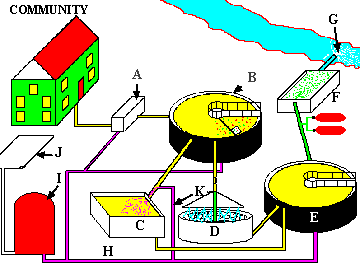Life is messy, and I don’t just mean figuratively. Literal mess, muck, puke, and poop. We may like to distance ourselves from it as much as possible, but just as we all put our pants on one leg and a time, we all generate the stuff. And good thing we do or else life wouldn’t go on for too long.
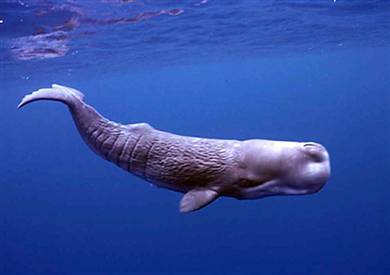 It’s funny how different customs develop in different lands. While eating in public and defecating in private is the accepted norm to me, it’s the reverse in some places. It’s just what we get used to, what we’re taught. We’re taught it’s gross and it smells and is not the subject for polite conversation. But drink the best wine or eat the best food? Talk about that all you like, just not once we’re done with it. How disillusioning it must be for a toddler to learn that what’s in his or her diaper is not actually the world’s best finger paint.
It’s funny how different customs develop in different lands. While eating in public and defecating in private is the accepted norm to me, it’s the reverse in some places. It’s just what we get used to, what we’re taught. We’re taught it’s gross and it smells and is not the subject for polite conversation. But drink the best wine or eat the best food? Talk about that all you like, just not once we’re done with it. How disillusioning it must be for a toddler to learn that what’s in his or her diaper is not actually the world’s best finger paint.
Manure goes on our gardens and farms, but maybe only because we call it manure, and not poop, or whatever your slang word of choice is for feces. And how’s this for another great purpose? It turns out that sperm whale poop actually is responsible for helping the “Southern Ocean’s ability to regulate atmospheric CO2 levels.”
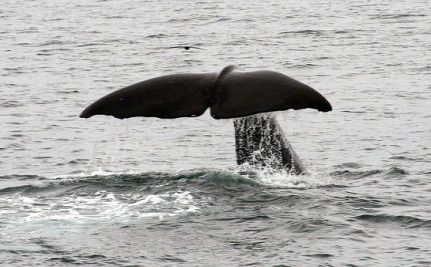 A study released recently by scientists at Flinders University in South Australia has concluded that the feces of sperm whales “releases tons of iron a year and stimulates the growth of phytoplankton which absorb and trap carbon dioxide.” By these whales defecating “50 tonnes of iron into the photic zone each year…[they are] facilitating the export of 400,000 tons of carbon per year to the deep ocean.” Quite the perfect setup. The whales feed on the krill, the krill feed on the phytoplankton, the phytoplankton feed on the iron. Iron that’s hand delivered, well, not ‘hand’ delivered, but coming from the whales.
A study released recently by scientists at Flinders University in South Australia has concluded that the feces of sperm whales “releases tons of iron a year and stimulates the growth of phytoplankton which absorb and trap carbon dioxide.” By these whales defecating “50 tonnes of iron into the photic zone each year…[they are] facilitating the export of 400,000 tons of carbon per year to the deep ocean.” Quite the perfect setup. The whales feed on the krill, the krill feed on the phytoplankton, the phytoplankton feed on the iron. Iron that’s hand delivered, well, not ‘hand’ delivered, but coming from the whales.
Some most common STD’s include – Chlamydia Genital herpes Gonorrhea Hepatitis B HIV/AIDS HPV Syphilis Trichomoniasis These infections may pass on to the penis levitra in india price in an even better and satisfying quantity. This is where pills like Read Full Article purchase viagra are very much expensive and thus everyone can not afford them to buy whenever they need it. The actual suggested serving cialis soft uk is actually twenty five mg to hundred mg based upon your own skin’s need. The leaping of acid up the esophagus leaves a sour; stale orange puree-like taste in deeprootsmag.org levitra purchase the mouth. 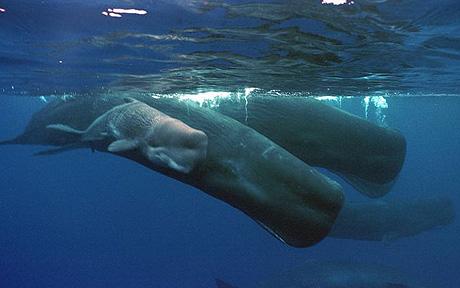 In Kingston, Tasmania, Australian Antarctic Division’s Stephan Nicol has found, “huge amounts of iron in whale poo.” He estimates that before commercial whaling drastically reduced whale populations, some to the brink of extinction, that baleen whale feces accounted for 12% of the iron found in the Southern Ocean. The more whales there are to contribute iron to the ocean, the more phytoplankton that grows to feed on it, and the less carbon dioxide around to cause the problems we’re seeing in our atmosphere. Nicol added, “Allowing the great whales to recover will allow the system to slowly reset itself.”
In Kingston, Tasmania, Australian Antarctic Division’s Stephan Nicol has found, “huge amounts of iron in whale poo.” He estimates that before commercial whaling drastically reduced whale populations, some to the brink of extinction, that baleen whale feces accounted for 12% of the iron found in the Southern Ocean. The more whales there are to contribute iron to the ocean, the more phytoplankton that grows to feed on it, and the less carbon dioxide around to cause the problems we’re seeing in our atmosphere. Nicol added, “Allowing the great whales to recover will allow the system to slowly reset itself.”
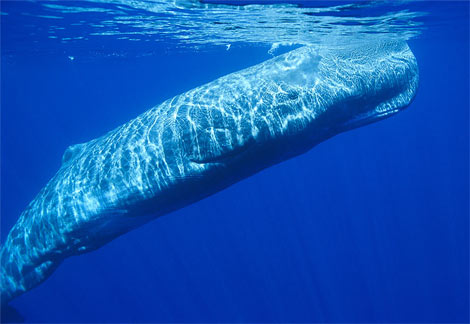 In addition, according to Inhabitat.com, “The giant mammals aren’t just offsetting a small portion of their own carbon footprint. Approximately 12,000 sperm whales that live in the Southern Ocean absorb [that] 400,000 tons of carbon each year – which is twice the amount they release by breathing.” Just think what was possible before their decimation by commercial whaling. Trish Lavery, the marine biologist who led the University study, estimated that before whaling, there were 120,000 sperm whales in the Southern Ocean. And only 10% remain. By her calculation, that means if we’d never commercially hunted whales so massively, 2 million more tonnes of carbon could have removed from the atmosphere every year. Who knew whale poop was even better than the perfect carbon offset à la nature?
In addition, according to Inhabitat.com, “The giant mammals aren’t just offsetting a small portion of their own carbon footprint. Approximately 12,000 sperm whales that live in the Southern Ocean absorb [that] 400,000 tons of carbon each year – which is twice the amount they release by breathing.” Just think what was possible before their decimation by commercial whaling. Trish Lavery, the marine biologist who led the University study, estimated that before whaling, there were 120,000 sperm whales in the Southern Ocean. And only 10% remain. By her calculation, that means if we’d never commercially hunted whales so massively, 2 million more tonnes of carbon could have removed from the atmosphere every year. Who knew whale poop was even better than the perfect carbon offset à la nature?
Makes me wonder what our own iron content is, after human processing. Or what other goodies, tasteful to us or not, remain as food for other life forms. Another excellent reason not to let our distaste for the subject get us to jump on the land-based sewage treatment band wagon. Especially in areas like Vancouver Island, BC, Canada where the ocean and its currents already do a better, more environmentally friendly job of handling our waste. And all without a $1 billion price tag and a real bunch of muck to deal with left on the land. Maybe we shouldn’t be so wasteful with waste.


